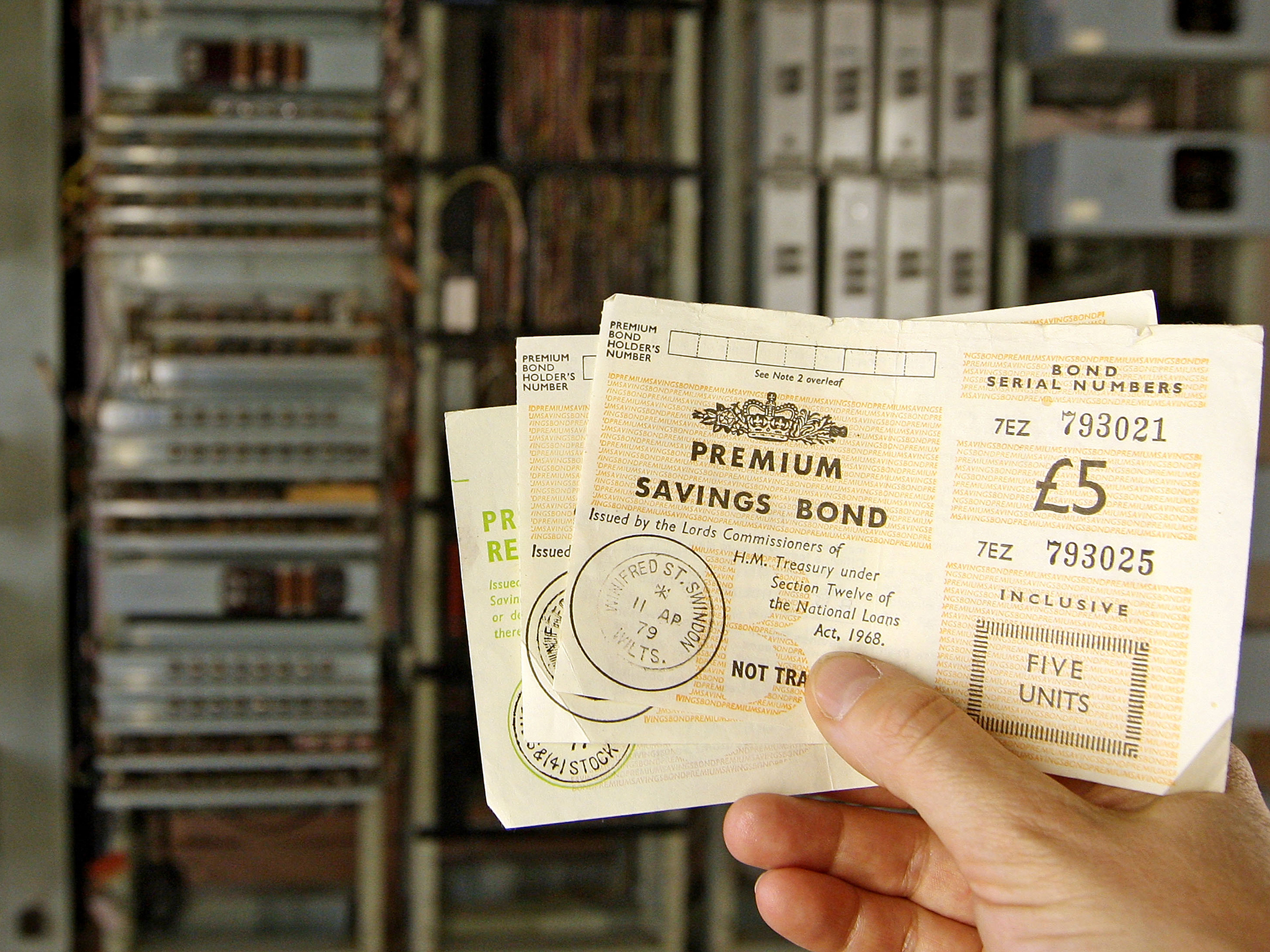What are the changes to National Savings payouts?
National Savings & Investments cuts dividends and prizes for bonds

A free daily email with the biggest news stories of the day – and the best features from TheWeek.com
You are now subscribed
Your newsletter sign-up was successful
National Savings & Investments has slashed payouts on accounts and Premium Bonds dealing a blow to millions of savers.
The biggest cuts will be on bonds. Income Bonds will fall from 1.15% to 0.7%, three-year Guaranteed Growth Bonds will fall from 1.7% to 1.3%, and three-year Guaranteed Income Bonds will drop from 1.65% to 1.25%.
The number of monthly winners of £50 and £100 Premium Bond prizes is to halve from 1 May, and the total number of tax-free Premium Bond payouts is to fall by more than 170,000 to 3.29 million.
The Week
Escape your echo chamber. Get the facts behind the news, plus analysis from multiple perspectives.

Sign up for The Week's Free Newsletters
From our morning news briefing to a weekly Good News Newsletter, get the best of The Week delivered directly to your inbox.
From our morning news briefing to a weekly Good News Newsletter, get the best of The Week delivered directly to your inbox.
The Guardian says this means the odds of any £1 bond number winning any prize will decrease from 24,500/1 to 26,000/1 from the May 2020 draw onwards.
“This is another kick in the teeth for savers,” said Baroness Altmann, the former pensions minister.
She told The Times: “Many people, especially older generations, have used NS&I all their lives and know it is safe, so they want to keep their money in those accounts… It seems the government is sanctioning rate cuts in NS&I that will allow banks to continue to offer very poor rates without driving more savers away.”
Ian Ackerley, chief executive of the NS&I, said: “Reducing interest rates is always a difficult decision. We need to ensure our interest rates are set at an appropriate position against those of our competitors.”
A free daily email with the biggest news stories of the day – and the best features from TheWeek.com
Sarah Coles, personal finance analyst at financial provider Hargreaves Lansdown, told The Sun: “It’s not all the NS&I’s fault. Its hands are tied, because it needs to offer value for money compared to government debt, and rates are so ridiculously low at the moment that the only way to compete is by offering something horribly uninspiring to savers.”
However, she adds, savers “don’t need to sit back and take this” but should use it as an incentive “to check out the competition and make... money work harder”.
Comparison tools, such as Moneyfacts, can help you discover the best interest rate for your cash.
–––––––––––––––––––––––––––––––For a round-up of the most important stories from around the world - and a concise, refreshing and balanced take on the week’s news agenda - try The Week magazine. Start your trial subscription today –––––––––––––––––––––––––––––––
-
 The ‘ravenous’ demand for Cornish minerals
The ‘ravenous’ demand for Cornish mineralsUnder the Radar Growing need for critical minerals to power tech has intensified ‘appetite’ for lithium, which could be a ‘huge boon’ for local economy
-
 Why are election experts taking Trump’s midterm threats seriously?
Why are election experts taking Trump’s midterm threats seriously?IN THE SPOTLIGHT As the president muses about polling place deployments and a centralized electoral system aimed at one-party control, lawmakers are taking this administration at its word
-
 ‘Restaurateurs have become millionaires’
‘Restaurateurs have become millionaires’Instant Opinion Opinion, comment and editorials of the day
-
 What to expect financially before getting a pet
What to expect financially before getting a petthe explainer Be responsible for both your furry friend and your wallet
-
 How to juggle saving and paying off debt
How to juggle saving and paying off debtthe explainer Putting money aside while also considering what you owe to others can be a tricky balancing act
-
 The pros and cons of tapping your 401(k) for a down payment
The pros and cons of tapping your 401(k) for a down paymentpros and cons Does it make good financial sense to raid your retirement for a home purchase?
-
 Saving for a down payment on a house? Here is how and where to save.
Saving for a down payment on a house? Here is how and where to save.the explainer The first step of the homebuying process can be one of the hardest
-
 Planning a move? Here are the steps to take next.
Planning a move? Here are the steps to take next.the explainer Stay organized and on budget
-
 What should you look out for when buying a house?
What should you look out for when buying a house?The Explainer Avoid a case of buyer’s remorse
-
 What to look for in a reliable budgeting app
What to look for in a reliable budgeting appThe Explainer Choose an app that will earn its place in your financial toolkit
-
 3 smart financial habits to incorporate in 2026
3 smart financial habits to incorporate in 2026the explainer Make your money work for you, instead of the other way around